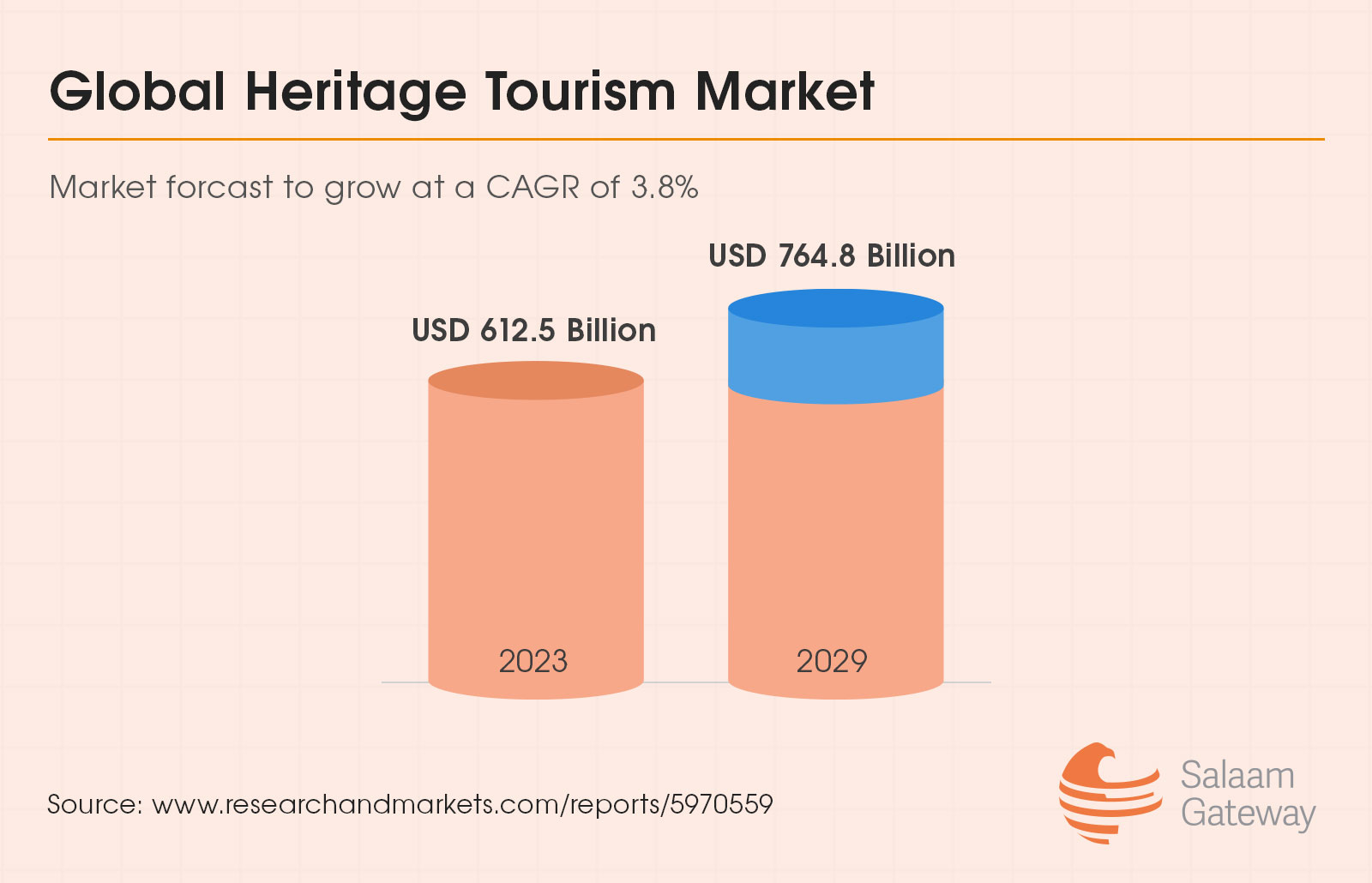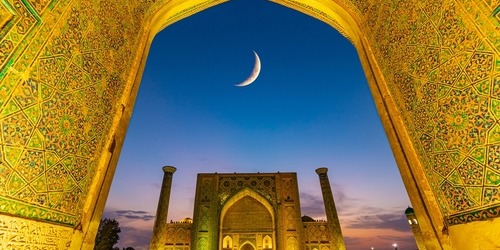Religious tourism: Why it may be prudent to reposition this space
The Muslim world is making headway in developing Islamic heritage tourism, but experts believe larger gains could be reaped from repositioning this space
From Asia to Africa, Muslim-majority countries are increasingly investing in developing and promoting Islamic heritage sites to increase their competitive edge and draw in more visitors.
However, these destinations could capture a bigger chunk of the $613-billion global heritage tourism market if they position their religious tourism offerings differently.
 Middle East countries such as Lebanon, Türkiye, and Egypt, as well as Asian nations like Indonesia, Bangladesh, and Uzbekistan, often use the term ‘religious tourism’ to attract visitors to their trove of Muslim heritage sites.
Middle East countries such as Lebanon, Türkiye, and Egypt, as well as Asian nations like Indonesia, Bangladesh, and Uzbekistan, often use the term ‘religious tourism’ to attract visitors to their trove of Muslim heritage sites.
This form of tourism is economically, socially, and culturally important for regions that have sacred Islamic sites and monuments.
But the renewed focus on promoting Islamic heritage extends beyond Muslim-majority countries, according to Ufuk Seçgin, chief marketing officer at HalalBooking, an online booking platform for Muslim-friendly travel.
“We have seen, for example, an increase in Muslim travellers booking accommodation in Spain’s Andalusia region to discover the history of the Umayyad dynasty,” he said.
Potential misinterpretations
Yet, the term ‘religious tourism’ can be misunderstood in the Muslim travel context, according to Fazal Bahardeen, founder and CEO of CrescentRating, a research organization focused on Muslim-friendly travel.
“Calling Islamic heritage ‘religious tourism’ can be problematic for some people. It might create issues with some parts of Muslim communities,” Bahardeen told Salaam Gateway.
“I feel it is better to describe Umrah and Hajj as religious travel and position the rest as Islamic culture or Muslim heritage travel.”
That positioning is not being done by many of the countries with Islamic heritage, he added.
“They either neglect it or position it as some kind of religious tourism; neither is appropriate. Of course, when it comes to Iran, it’s a different ballgame as there is a religious travel aspect to parts of the country.”
Hafsa Gaher, founder of the Halal Travel Network, a platform dedicated to cultivating Muslim-friendly travel, shares a similar sentiment, suggesting that ‘religious tourism’ could be misinterpreted if it is used to describe travel to places across the world.
“I would extend the term beyond the pilgrimages of Umrah and Hajj. The Al-Aqsa Mosque in Palestine, Kairouan in Tunisia, and the Great Mosque of Djenné in Mali are just a few examples of places that could be visited to further someone’s connection to prayer and worship.”
While Umrah and Hajj pilgrimages are forefront in terms of significance, there is great benefit to making journeys to other significant places to deepen that connection, adds Gaher, who is also a co-founder of Archer & Gaher Adventures, an Africa-specialist tour operator.
Reconnecting with Muslim history
In all cases, Gaher believes that a distinction should always be made between religious tourism and Islamic heritage tourism, especially as the latter can be promoted to a wider audience.
“For me, ‘religious tourism’ refers to journeys made for religious purposes and often includes significant places with ties to Islam. Indeed, certain places such as Makkah or Madinah are reserved exclusively for Muslim travel as places of worship,” she explained.
“In contrast, Muslim heritage can be celebrated by everyone, creating connections to Muslims both past and present. So, it is the traveller’s intention that differentiates the term.”
And it is this link to Muslim communities that should be at the heart of efforts to promote Islamic heritage, Gaher added.
“Liaising with local mosques and community leaders is a great way to create not only an authentic experience for travellers but also a sense of pride and history for those who live there.”
Similarly, Bahardeen suggests promoting Islamic heritage to Muslims as a way of reconnecting with their past and learning about the legacies left by prominent figures such as Imam Mohammed Al-Bukhari, one of the most eminent scholars of Hadith in Islamic history.
He notes that Uzbekistan is one of the countries doing a notable job in promoting its Islamic heritage to the world - efforts which are particularly noticeable in the cities of Bukhara and Samarkand.
For instance, the mausoleum of Imam Al-Bukhari—along with many other revered sites in Islam—is listed among Uzbekistan’s top attractions by the country’s tourism committee and travel agencies.
“We need to reimagine how we are going to position Islamic heritage. This is necessary at this time, especially for younger Muslims who need to be reconnected to their glorious history,” said Bahardeen.
“We also need to educate different stakeholders on how to position this whole space – the terminology and storytelling. There is huge untapped potential.”
Purposeful adaptations
With language constantly evolving to reflect modern times, HalalBooking found it necessary to repurpose existing words to describe the attributes which are important to the platform’s guests.
A similar approach can be taken with the term ‘religious tourism’, suggested Seçgin.
“Take, for example, the word ‘secluded’ - we use this to describe a leisure facility, such as a pool where it is not possible to see in from the outside, meaning that a woman can feel comfortable in removing her hijab. This is not the word’s original definition, but its new or adopted meaning is gradually becoming more current,” he explained.
